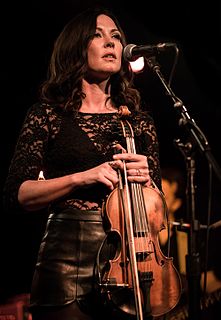A Quote by George Orwell
Modern writing at its worst does not consist in picking out words for the sake of their meaning and inventing images in order to make the meaning clearer. It consists in gumming together long strips of words which have already been set in order by someone else, and making the results presentable by sheer humbug. The attraction of this way of writing is that it is easy.
Related Quotes
A definition is nothing else but an explication of the meaning of a word, by words whose meaning is already known. Hence it is evident that every word cannot be defined; for the definition must consist of words; and there could be no definition, if there were not words previously understood without definition.
When everything does seem out of control, writing fiction is a way I can order that chaos and restore some sort of meaning. I like the playful aspect of writing fiction. You know how it is when we are kids and we make up our worlds: You be this guy, and I am going to be this guy, and we are going to go slay dragons.
I'm still happy with the way Einstein's Dreams came out. That book came out of a single inspiration. I really felt like I was not creating the words, that I was hearing the words. That someone else was speaking the words to me and I was just writing them down. It was a very strange experience. That can happen with a short book. I don't think it could happen with a long book.
I think all writing is about writing. All writing is a way of going out and exploring the world, of examining the way we live, and therefore any words you put down on the page about life will, at some level, also be words about words. It's still amazing, though, how many poems can be read as being analogous to the act of writing a poem. "Go to hell, go into detail, go for the throat" is certainly about writing, but it's also hopefully about a way of living.
There is something myopic and stunted in focussing only on the meaning of words and sentences. And this myopia is especially unfortunate when combined with a rather abstract view of a language as a set of elements and rules for combining these. For the result is to divorce enquiry into meaning from attention to the way words - and gestures, facial expressions, rituals and so on - are embedded in practices, in what Wittgenstein called 'the stream of life'.
One great aim of revision is to cut out. In the exuberance of composition it is natural to throw in - as one does in speaking - a number of small words that add nothing to meaning but keep up the flow and rhythm of thought. In writing, not only does this surplusage not add to meaning, it subtracts from it. Read and revise, reread and revise, keeping reading and revising until your text seems adequate to your thought.
I did all the stuff that people do - film, performance, photography, pictures and words, words and pictures. In retrospect, I was trying to find some way to put things - meaning images and forms - together that highlighted some idea of what was underneath the surface of an image, what determined how something was seen.
I have a problem with writer/directors, personal. I can't work well with both of them on the set, if both of them are giving instructions. Writers tend to be in love with what they wrote. You can't always translate the words into the meaning, sometimes the meaning is better served without the words, difficult to make a writer to try to understand that. It gets, sometimes, tense.
Words... They're innocent, neutral, precise, standing for this, describing that, meaning the other, so if you look after them you can build bridges across incomprehension and chaos. But when they get their corners knocked off, they're no good any more... I don't think writers are sacred, but words are. They deserve respect. If you get the right ones in the right order, you can nudge the world a little or make a poem which children will speak for you when you're dead.





































